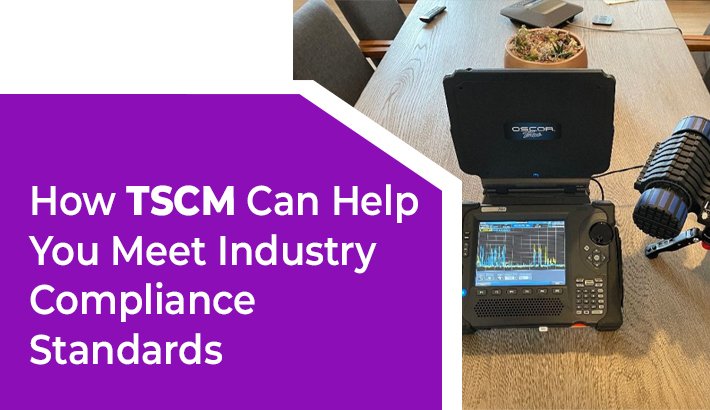In today’s ever-evolving regulatory landscape, businesses across industries are constantly grappling with the challenge of adhering to a complex web of compliance standards. These standards, established by governing bodies and industry associations, are designed to ensure the safety, security, and ethical conduct of business practices. Failure to comply can result in hefty fines, reputational damage, and even operational disruptions. This is where Third-Party Supply Chain Management (TSCM) emerges as a critical ally, offering a comprehensive approach to mitigating compliance risks and achieving sustainable compliance.
However, navigating the intricacies of TSCM can be a complex task. This is where Advance Detective Agency – a leading detective agency in Delhi, with their expertise in investigations and due diligence, can become valuable partners in strengthening your TSCM program. These agencies offer a range of services that can complement your existing compliance efforts and provide much-needed peace of mind.
Understanding the Compliance Conundrum
Compliance standards vary depending on the industry you operate in. Some common examples include:
- General Data Protection Regulation (GDPR): A regulation in EU law on data protection and privacy in the European Union (EU) and the European Economic Area (EEA).
- Health Insurance Portability and Accountability Act (HIPAA): A United States federal law that protects individually identifiable health information.
- Sarbanes-Oxley Act (SOX): A U.S. law that established auditing and financial reporting standards for publicly traded companies.
- International Organization for Standardization (ISO) Standards: A family of internationally recognized standards and certifications that cover a wide range of disciplines.
These are just a few examples, and the specific standards that apply to your business will depend on your location, industry, and the nature of your operations. The challenge lies in keeping abreast of these ever-changing regulations and ensuring that your entire supply chain, including third-party vendors and partners, are also compliant.
The TSCM Advantage: A Holistic Approach to Compliance
TSCM goes beyond simply managing third-party relationships. It encompasses a strategic framework for assessing, mitigating, and managing risks associated with your entire supply chain. Here’s how TSCM empowers businesses to achieve and maintain compliance:
- Vendor Risk Assessment: A cornerstone of TSCM is the comprehensive evaluation of potential and existing vendors. This assessment process involves scrutinizing a vendor’s security protocols, data governance practices, and adherence to relevant compliance standards. By identifying potential risks early on, businesses can make informed decisions about who to partner with and implement appropriate mitigation strategies.
- Contractual Safeguards: TSCM emphasizes the importance of incorporating robust compliance clauses into vendor contracts. These clauses should clearly outline the expected standards of conduct, data security protocols, and the consequences of non-compliance. Well-defined contracts provide a legal framework for holding vendors accountable and ensuring they adhere to your compliance requirements.
- Continuous Monitoring: Maintaining compliance is not a one-time event. TSCM advocates for ongoing monitoring of vendor practices. This may involve periodic audits, security assessments, and requesting regular updates on a vendor’s compliance posture. Proactive monitoring allows businesses to identify and address any emerging compliance issues before they snowball into major problems.
- Collaboration and Communication: Effective communication is paramount in achieving supply chain compliance. TSCM fosters open communication channels between your organization and your vendors. This allows for clear expectations to be set, concerns to be addressed promptly, and best practices to be shared.
Beyond the Basics: The Broader Benefits of TSCM
While achieving compliance is a crucial objective, TSCM offers a multitude of benefits that extend beyond regulatory adherence. These include:
- Enhanced Security: By ensuring that vendors adhere to robust security protocols, TSCM safeguards your organization’s sensitive data from cyber threats and breaches.
- Improved Operational Efficiency: A streamlined and well-managed supply chain, facilitated by TSCM, can lead to increased efficiency, reduced costs, and improved overall business agility.
- Stronger Brand Reputation: Demonstrating a commitment to compliance fosters trust and confidence with your customers, partners, and stakeholders. A solid TSCM program can enhance your brand reputation and position you as a responsible and ethical organization.
- Risk Mitigation: Proactive risk management, a core tenet of TSCM, can help you identify and mitigate potential disruptions within your supply chain, ensuring business continuity and minimizing downtime.
Implementing a TSCM Program: A Step-by-Step Guide
Getting started with TSCM might seem daunting, but with a structured approach, you can establish a robust program that safeguards your compliance posture. Here’s a roadmap to guide you:
1. Establish a TSCM Team: Assemble a cross-functional team comprising representatives from procurement, legal, IT security, and compliance departments. This team will be responsible for developing, implementing, and overseeing the TSCM program.
2. Identify Relevant Compliance Standards: The first step is to understand the specific compliance standards that apply to your business and your vendors. Conduct a thorough analysis of industry regulations and any geographical requirements that may be applicable.
3. Develop a Vendor Risk Assessment Framework: Create a standardized process for evaluating potential and existing vendors.This framework should encompass factors such as:
- Security controls: Assess the vendor’s data security measures, including firewalls, intrusion detection systems, and access control protocols.
- Data governance practices: Evaluate how the vendor handles sensitive data, including data storage, encryption, and disposal procedures.
- Compliance history: Investigate the vendor’s past compliance record and inquire about any regulatory actions they may have faced.
- Business continuity plans: Understand the vendor’s plans for mitigating disruptions and ensuring continued service delivery in case of unforeseen events.
4. Standardize Vendor Contracts: Develop standardized contract templates that incorporate clear and concise compliance clauses. These clauses should address:
- Data security obligations: Clearly outline the vendor’s responsibility for safeguarding your sensitive data.
- Compliance certifications: Specify any required industry certifications that the vendor must possess.
- Audit rights: Reserve the right to conduct periodic audits of the vendor’s compliance practices.
- Termination clauses: Outline the consequences of non-compliance, including the potential for termination of the partnership.
5. Implement a Vendor Onboarding Process: Establish a well-defined process for onboarding new vendors. This process should include:
- Contract negotiation and finalization
- Completion of the vendor risk assessment
- Compliance training for the vendor’s team (if applicable)
6. Enable Ongoing Monitoring: Put measures in place to continuously monitor your vendor’s compliance posture. This may involve:
- Periodic security assessments
- Requesting regular updates on the vendor’s compliance certifications
- Incorporating compliance considerations into performance reviews
7. Foster Open Communication: Maintain open communication channels with your vendors. Regularly engage with them to discuss compliance expectations, address any concerns, and share best practices.
8. Continuously Improve: The TSCM program is an ongoing process. Regularly review and update your program to reflect evolving compliance standards, industry best practices, and the specific needs of your organization.
How Advance Detective Agency Can Complement Your TSCM Program
While Advance Detective Agency’s services – a leading detective agency in Delhi likely won’t directly handle all aspects of TSCM implementation, they can be a valuable partner in specific areas related to vendor risk assessment and due diligence. Here’s how ADA’s services can complement your TSCM program:
- Background Checks and Verifications: ADA can conduct thorough background checks on potential vendors, verifying their business licenses, certifications, and regulatory compliance history. They can also investigate the reputation of the vendor and its key personnel.
- Competitor Intelligence Gathering: Understanding your competitors’ vendor selection process and their chosen partners can provide valuable insights. Advance Detective Agency can discreetly gather intelligence on your competitors’ supply chains and identify potential red flags.
- Surveillance and Investigations (Limited Use Case): In specific scenarios where a vendor’s practices raise serious concerns about legitimacy or ethical conduct, ADA may be able to conduct discreet surveillance or investigations to gather additional evidence. It’s important to note that legality and ethical considerations should be carefully reviewed before employing such measures.
- Fraud Investigations: If you suspect a vendor may be engaged in fraudulent activities, ADA can assist in uncovering the truth. Their investigative expertise can help identify evidence of financial impropriety or unethical business practices.
However, it’s important to remember that ADA’s services should be seen as a supplementary tool within your TSCM program. Here’s why:
- Focus: Advance Detective Agency specializes in investigations and intelligence gathering. While this can be valuable for specific aspects of TSCM, they may not have the expertise to handle broader compliance program development, vendor onboarding, or continuous monitoring.
- Cost: The services offered by Advance Detective Agency can be expensive, and their use should be reserved for situations where the potential risk justifies the cost.
- Focus on Evidence Collection: Their primary function is to gather evidence, not provide compliance guidance or implement preventative measures.
Maximizing the Benefits of Advance Detective Agency in TSCM
Here’s how to leverage Advance Detective Agency’s services most effectively within your TSCM program:
- Targeted Investigations: Utilize their services for specific high-risk vendors or situations where red flags arise during the initial risk assessment.
- Verifying Information: They can help verify information provided by vendors, particularly when dealing with companies in unfamiliar jurisdictions.
- Uncovering Hidden Issues: If you suspect a vendor may be misrepresenting themselves or engaging in unethical practices, the Advance Detective Agency can help unearth the truth.
Remember: Building a robust TSCM program requires a multi-pronged approach. While the Advance Detective Agency can be a valuable partner in specific situations, the core TSCM framework should focus on prevention, collaboration, and ongoing monitoring.
Embracing Technology and Collaboration
As technology continues to evolve, TSCM is poised to leverage new advancements to enhance its effectiveness. Here are some emerging trends:
- Automation: Automating routine tasks associated with vendor risk assessments and monitoring can free up valuable resources for more strategic initiatives.
- Big Data Analytics: Leveraging big data analytics can provide deeper insights into vendor risk profiles and enable more predictive risk management strategies.
- Blockchain Technology: Blockchain technology has the potential to revolutionize supply chain transparency and traceability, making it easier to track compliance adherence throughout the chain.
- Collaboration Platforms: Cloud-based collaboration platforms can facilitate communication and information sharing between businesses and their vendors, fostering a more collaborative approach to compliance.
Conclusion
In conclusion, TSCM is not just a compliance checklist; it’s a strategic framework for building a resilient and responsible supply chain. By proactively managing vendor risks and fostering a culture of compliance, businesses can navigate the ever-changing regulatory landscape with confidence. As we move forward, embracing technological advancements and fostering closer collaboration with TSCM services will be key to unlocking the full potential of TSCM and achieving sustainable compliance in a dynamic business environment.



